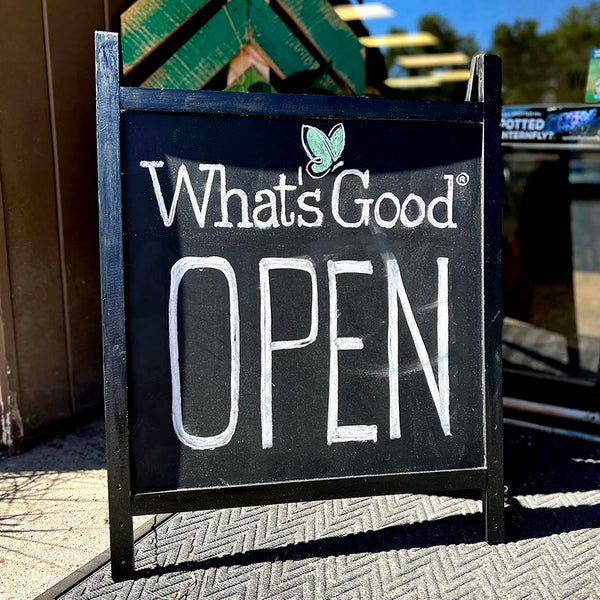FREE 🇺🇸 GROUND SHIPPING Orders 75+
FREE 🇺🇸 GROUND SHIPPING Orders 75+
Add description, images, menus and links to your mega menu
A column with no settings can be used as a spacer
Link to your collections, sales and even external links
Add up to five columns
Add description, images, menus and links to your mega menu
A column with no settings can be used as a spacer
Link to your collections, sales and even external links
Add up to five columns
Walk Like an Egyptian, Reuse Your Bags
March 11, 2020

Humans have been using and reusing bags before recorded history. A quick web search will show you ancient bag remnants, statues of stone figures carrying bags, and ancient Egyptian hieroglyphics depicting warriors with… you guessed it, bags. The point is from the dawn of humans, the reusable bag has been a fundamental tool in the development of civilization. READ: reusable bags are civilized. In the beginning, most were utilitarian, though there’s evidence that bags were also a display power and wealth. So why are so many of us grumbling about having to use reusable bags?
Of all the things that can go wrong in the world, indeed are going wrong in the world, THIS IS NOT A BIG DEAL. Once you get in the habit of remembering to bring them with you, it becomes second nature and a fun way to express yourself. Think about these reusable bag positives:
- Capacity! You can carry 4x! more than grocery store plastic bags
- Comfort! Thanks to longer arm straps and comfy material
- Choice! A variety of materials, colors, and patterns let you express you.
- Clean! You can pop them in the washer for a fresh start (at least the ones we sell).
- Value! Your bags should last you years and years.
- Health! For you and the planet by reducing landfill waste, plastic litter, and preventing plastic leaching.
Despite the good, you may be experiencing withdrawal from grocery store and take-out bags. If so, here are a few facts to get you in the mood to ditch plastic:
- Plastic bags are made from non-renewable petroleum and natural gas. The drilling of these resources negatively impacts fragile habitats and eco systems.
- Just one plastic bag is equivalent to driving one mile in a gas-powered vehicle. This is terrifying when you consider in the US alone, we use 100 billion bags a year, requiring2 billion pounds of fossil fuel and 3.9 billion gallons of fresh water to produce.
- Plastic bags are not compostable. They will biodegrade in about 500+ years if exposed to sunlight. However, they simply break down into smaller micro-plastic bits—toxins that leach into ground water, toxins that make their way to your dinner table via the water you drink and the animals, fish and vegetables we consume. Why does this matter? Plastic is carcinogenic and can disrupt your endocrine system when inhaled or ingested. In other words, you can’t buy a BPA free water bottle or baby bottle and then take it home in a plastic bag and think you’re isolated from the negative impact of plastic.
- Speaking of wildlife, when animals ingest plastic, they often choke to death to say nothing of being trapped it.
- Roughly only 1% of these bags get recycled and even when they do, they are challenging to recycle and often get sent to landfills.
- Litter! Not only are these bags unsightly blowing around our neighborhoods and green spaces, they do real damage. Bags clog up gutters and storm drainage systems which can cause water and sewage to overflow and become a breeding ground for disease-causing germs, bacteria and insects, like mosquitoes.
- There is now more plastic in our oceans than plankton, with 46,000 pieces of plastic in every square mile of ocean.
All for a mere 12 minutes of glory. Which is the average time a plastic bag is used. You might argue that you reuse your bags for your bathroom garbage cans or to clean up dog poop. Please don't. If you've got them, recycle them. Use these compostable alternatives for garbage and pets instead.
What about paper bags? It is true, paper bags come from trees—a renewable and sustainable resource. It is also true, paper bags are biodegradable, compostable and recyclable. Unfortunately, paper bags are also resource intensive, requiring some 14 million trees, lots of energy, and water for pulp. Practically speaking, paper bags have limited reuse potential and are challenging to carry when packed with groceries


This brings us back to reusable bags.
As we say, there are many shades of green. In the world of reusable bags, it’s no different. Just because it's reusable doesn't mean it's a green choice.
Take our local, upstate New York grocery chain. They sell reusable grocery bags—made out of plastic. The bags work well, they wipe clean, they’re sturdy, and they hold a ton. Unfortunately, they’re plastic, they’re not recyclable, and they present the same plastic issues their thin plastic counterparts present. What do you do with it when it’s outlived its life?
How about cotton bags? It’s both good and bad. Cotton is resource heavy—consuming energy, land, fertilizers, and pesticides. Organic cotton, while there are no harmful chemicals, is still a resource hog. Some would argue more so than its non-organic counterpart. The good news is that both are sustainable, biodegradable, and compostable.



Recycled cotton is my favorite choice because it is entirely manufactured from post-industrial cotton fibers and uses far less resources to create.
Start first with whatever reusable basket or bag works for you and your budget. Then, consider the material of the bag… choose recycled over organic cotton, and organic cotton over regular cotton. And of course, choose cotton over synthetic textiles, like nylon or polyester or other plastic material.
Additional things to think about: Where was the material sourced? If manufactured outside of the US, were the employees paid a living wage? Is it sturdy? Does it hold enough? Does it comfortably sling over your shoulders? Can you pop it in your washing machine? Do you like the pattern or color?
There are so many colors, patterns and styles, why limit yourself. Have fun. Buy ten. If you need a few suggestions, follow this link. If you forget your bags… don’t bag at all. Just take the cart to your car and unload.
One final thought: The fact that you’re choosing to use reusable bags is awesome. At the end of the day, however, what you choose to put IN your bag may be more important than the bag. That’s a story for another day.
P.S. Here are few articles and links to peruse:
https://www.nytimes.com/interactive/2020/02/28/arts/design/ny-plastic-bag-ban.html?smtyp=cur&smid=fb-nytimes&fbclid=IwAR3mI7XC3hxgWUpMRhX5oFL2g2NzAOCF-WIUf8xkn9PHa4a7cGgYFh9dnyA
https://www.ecowatch.com/new-york-plastic-bag-ban-begins-2645319695.html
https://www.onegreenplanet.org/animalsandnature/whats-so-bad-about-plastic-bags/
Leave a comment

Good News
If any email is worthy of your inbox, it's this. Our goal is 1–2x per month. You'll get helpful & inspiring eco info, plus subscriber-only discounts.
Welcome to What's Good
Here's your $10 coupon
COPY THIS CODE TO USE IN CHECKOUT
